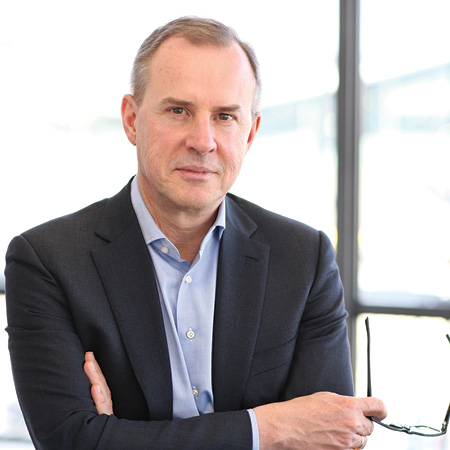As worldwide travel becomes increasingly accessible to even the most far-flung regions around the globe, finding a park in your local city is proving not so easy. The fight to find that elusive free spot on the street is fierce, tempers reach fever pitch, road rage often makes the news, and bumper parking — when you nudge the car in front and behind to squash into an impossible spot — is almost considered a national sport in some major cities. The Greeks and Italians would definitely make the podium, while the French would be awarded Olympic gold.
Free on-street parking – a luxury of the past?
Assuming you can actually drive the car into town — that subject deserves a whole article on its own — free on-street parking, it seems, will soon become a luxury of the past, no matter where you choose to park in cities around the world. The problem is compounded for city dwellers choosing to live within walking distance of their favourite haunts, but who still require a car. These folk are feeling the squeeze as the tentacles of restrictive parking curl further and further around their inner-city residential roads. It’s totally fine if you can walk to work, don’t have children, and don’t mind catching 3 modes of transport to buy your groceries, yet certainly frustrating when trying to find a park in your own street, let alone in front of your house. It’s a dilemma with no geographical boundaries as town planners and local governments worldwide seek to find the solution to decrease traffic congestion, while grasping the fact that parking is still very much a convenience which simply can’t be ignored.
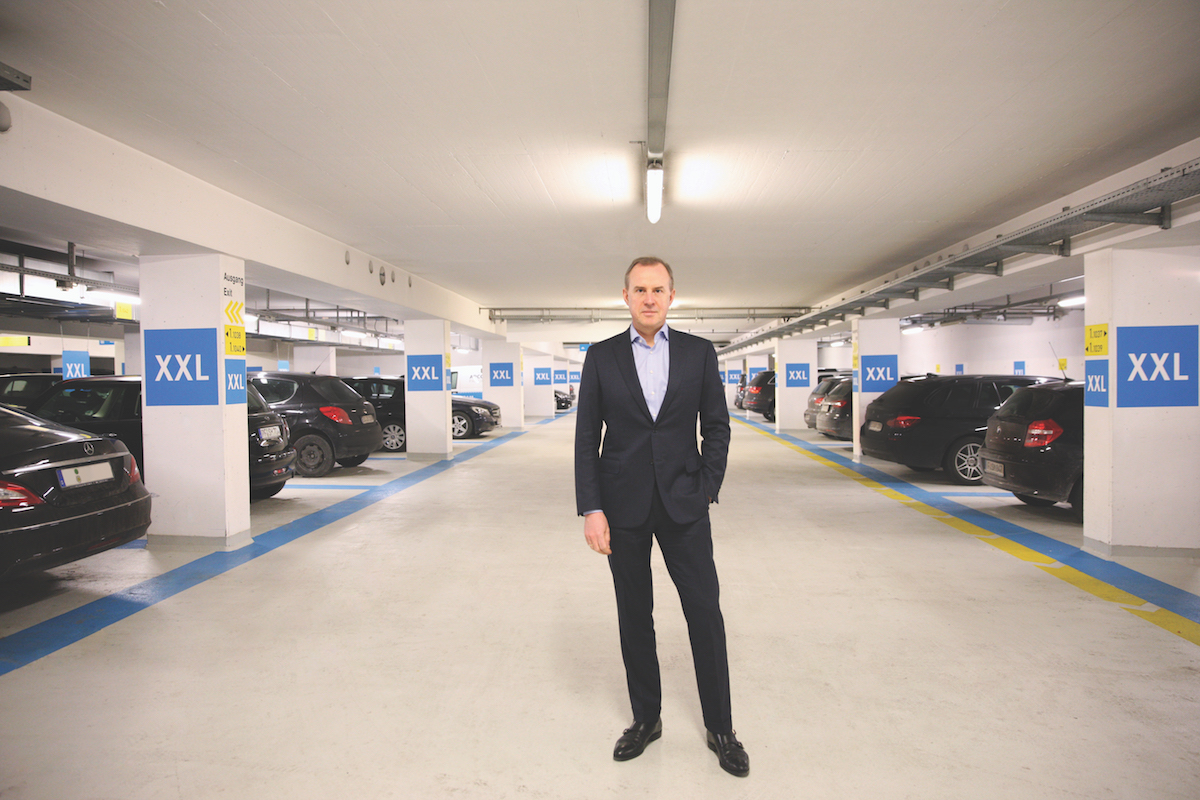
There are already cities where there’s no free on-street parking anymore, and I’d say that in 5 years there’ll be no more free parking. – Philippe Op de Beeck
Fast forward to another world. A world where you drive home from work, stop in front of your house, step out of your car, and then simply send your car off to bed. Alone. Safe to a central car park located blocks away. Fanciful? Not when you talk to the CEO of APCOA, Europe’s leading parking services provider. While Philippe Op de Beeck admits the concept of driverless cars taking themselves off to park is not impending, it’s doubtless on the foreseeable horizon. He does agree, however, that the demise of free parking is imminent.
“There are already cities where there’s no free on-street parking anymore, and I’d say in 5 years there’ll be no more free parking,” Philippe predicts. “Municipalities and cities obviously want to decrease traffic, but they also want to improve the look and feel
of cities, which is another reason why they want on-street parking to diminish or even disappear.
“But you still need parking, so there’ll be increased demand for off-street parking either underneath or above ground,” he says. “This means very high investments. Above-ground parking, depending on how elaborate, can cost between €6,000 and €12,000 per space. If you go underground, it can be upwards of €30,000.”
A city doesn’t like to put its money in the ground
Undoubtedly, finding solutions for commuter and visitor parking is expensive, and some cities prefer the other option of banning parking. Many cities, particularly in Europe, literally try to bury the problem.

According to a report by The Guardian in 2016, Zurich decreed there would be no more on-street parking 20 years ago, with officials capping the number of parking spaces. While the city welcomed car-park developers, it was on the condition that the number of underground spaces they provided was matched to the number of on-street parking spaces they eliminated. Paris was also aggressive in its approach when the city began eliminating on-street parking in 2003, scrapping 15,000 parking spaces and replacing them with 24/7 underground facilities.
Walkable urban development is also a popular town-planning choice, with pedestrian plazas a favourite in the embellishment process. As architects become more obsessed with aesthetics than practicalities, ugly, multi-storey carparks are not making it to the top of the city’s beautification list.
“A city doesn’t like to put its money in the ground,” Philippe says. “It would prefer to show off the money above ground with parks and facilities local residents will enjoy. You must remember that parking is something you use almost unconsciously, always en route to doing something else like shopping, flying or visiting someone. It’s not somewhere you go to be.”
While APCOA is under no illusion that car parks will ever be more than just a necessity for motorists, or are likely to become a sexy architectural dream for city officials, the company is determined to make car parking a more productive experience. Carwashes, electrical recharging terminals, and tyre changes are already part of the APCOA service, and constant advances in digitisation are revolutionising car parking to the point where barrier gates and tickets have been removed from the process.
Advantages above and beyond classic parking
APCOA as it exists today was founded in 1970 in Stuttgart, its name originating from the former US parent company Airport Parking Corporation of America, which began operation in 1947. Working for private landlords and public organisations, the company now manages 1.4 million parking spaces in more than 9,000 locations, including more than 30 airports across 12 European countries.
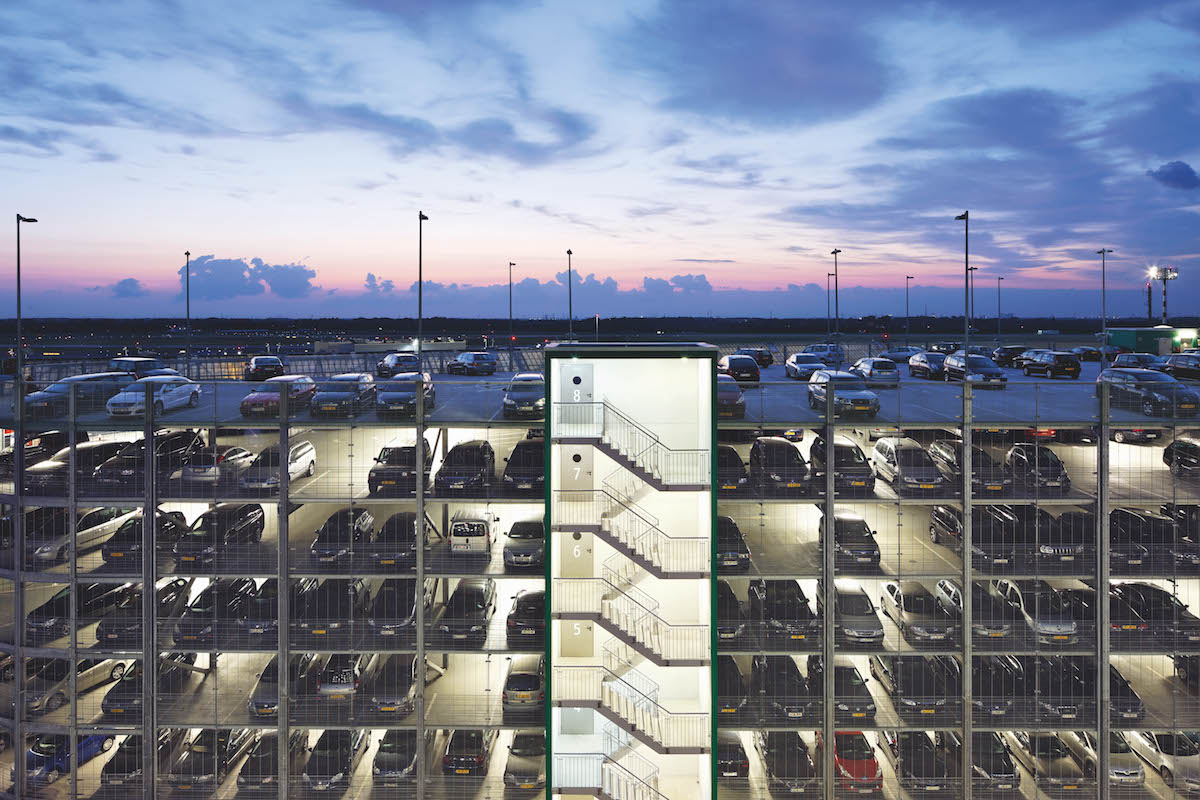
We aren’t in competition with the landlord or organisation, instead we want to offer advantages above and beyond classic parking by focusing a lot more on the driver and increasing the convenience for them. – Philippe Op de Beeck
Philippe is convinced APCOA has the advantage over its competitors because of its unique business model as a service provider. Instead of owning the car parks and trying to profit from the asset itself, the company concentrates instead on long leases and management contracts. That leaves room to focus solely on the needs of the consumer (drivers) and clients (asset owners and cities). The company, drawing on essential local knowledge, manages every aspect of car-park management, from costs and revenue to designs and marketing campaigns to on- and off-street parking, parking meters, installation, maintenance, administration and permits. It provides full management services for above-ground car parks, multi-storey car parks, underground car parks, and temporary car parks for event management, and provides local council parking enforcement. There are also special assistance programs for mothers and young children, the handicapped, and elderly people. Using a very proactive approach to luring consumers back through the boom gates, APCOA is tapping into the latest technology, addressing environmental concerns and working with local employees to gauge local traffic congestion and transport options.
“We just want to make the most revenue for the asset owner by providing the best experience for the consumer. We aren’t in competition with the landlord or organisation; instead, we want to offer advantages above and beyond classic parking by focusing a lot more on the driver and increasing the convenience for them,” Philippe says. “We’ll only make money on the revenue we generate for our business partners and the asset owner, so we have a different incentive. Although we don’t own the asset, we do invest in the fit-out of the car parks — the painting, floors, equipment, all of those things which can influence the experience for the consumer.”
A lot to learn
Until a year ago car parks weren’t something Philippe put a lot of thought into. Like the rest of us, he’d arrive at a car park, stop, get out, head off to where he needed to go, giving it no further thought until he had to pay.

In the past, only about 10 years ago, it was more simple. You opened a car park in a good location and people came. Those days are completely gone; the power has shifted much more to the consumer. – Philippe Op de Beeck
He admits he had a lot to learn when appointed CEO last April by majority-shareholder investment firm Centerbridge, but his 25 years of experience in global companies including Unilever, Hertz car rental, and Compass Group were enough to satisfy APCOA.
“I wasn’t from the car-parking industry, but that wasn’t the requirement,” he says. “The requirement was to have worked with a mixture of B2B and B2C international environments, and that’s what I’ve done throughout my career. APCOA isn’t a restructuring case; the investment of Centerbridge is about growing this company in a very fast-changing environment, to make the driver see parking as an experience, not just somewhere you have to go to get somewhere else.
“The parking-management industry is all about multiple locations serving different clients,” he says. “We have the B2B, the owner of the parking asset, or the shopping centre, or hospital. We obviously need to serve them. Then we have the B2C; those are the consumers actually bringing the revenue in, the drivers, the people we have to provide the experience for. Then there’s the municipality, the city, which we have to assure that we’re providing the best service to residents and visitors.”
Naturally, each of these 3 stakeholders — the asset owner, the municipality, and the driver — have specific needs and each is integral to the growth of the industry. Each has also experienced in different ways the dramatic change within the car-park industry. Cities want fewer cars, drivers have become more discerning, and owners have to invest more to find solutions. “In the past, only about 10 years ago, it was more simple. You opened a car park in a good location and people came. Those days are completely gone. The power has shifted much more to the consumer,” Philippe reflects.
The parking process will be driven by technology
“Today the drivers have more knowledge. Through apps and websites, they’re informed about availability, price and convenience. As the digital-savvy nature of the consumer accelerates, the car-park industry can only grow by offering them more convenience.”
Then there’s the city itself, the municipality, whose main concern has always centred on security and accessibility. That’s changed as well, as the focus shifts to getting cars off the streets and sometimes out of town. Meanwhile, among the increasing digitisation, a more discerning consumer and cities redesigning the concept of parking, a 4th category of player has emerged and gained importance within the carpark industry.
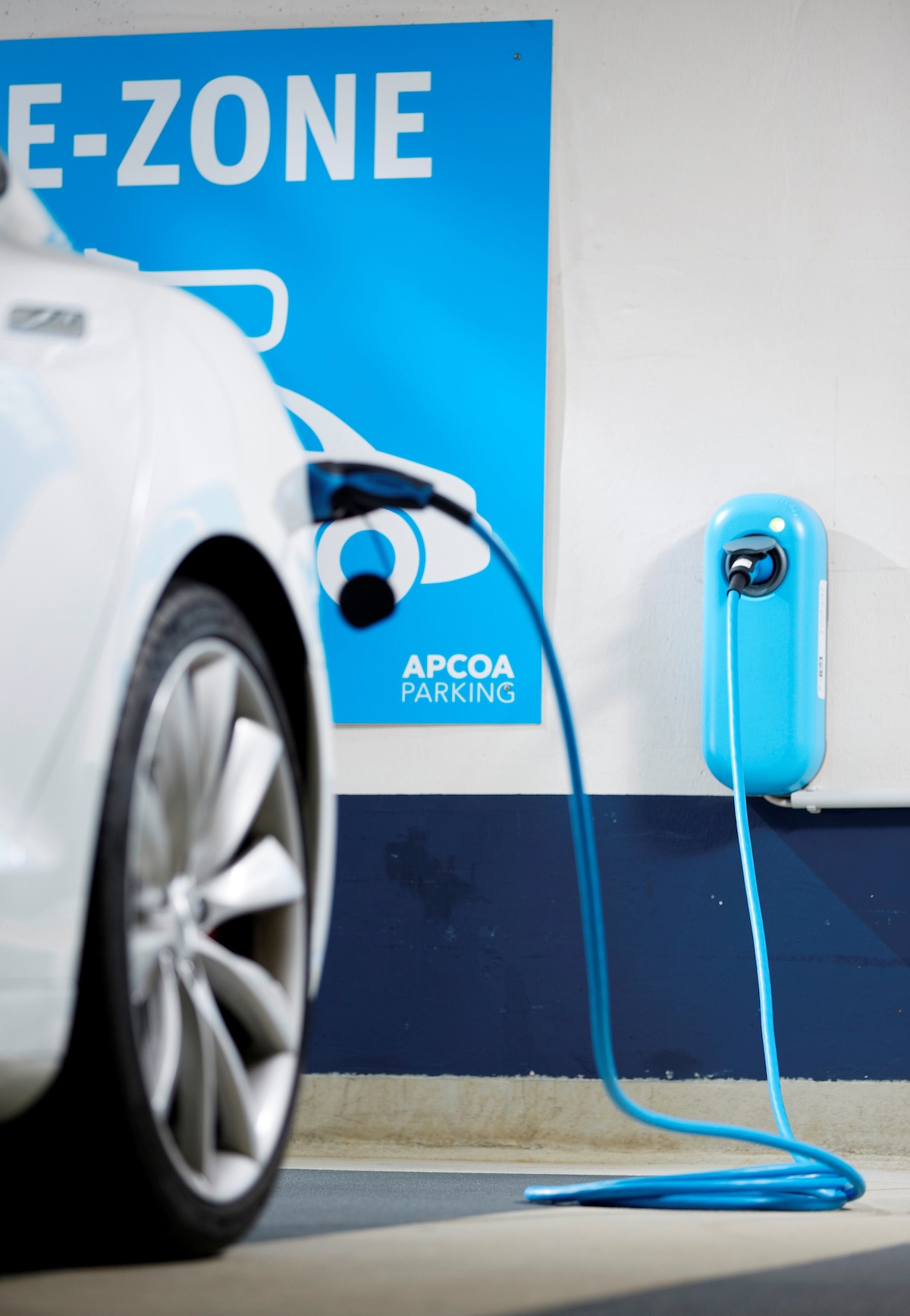
The days of driving into a car park, taking a ticket, then paying before you drive out will be gone. Now it’s all about loyalty and emotional comfort. -Philippe Op de Beeck
“This has appeared from ecosystems developing within the car-parking industry,” Philippe says. “There are companies like Uber, Google or Apple who all have something they want to develop where they want to include parking. Then you have car manufacturers, car sharing, electric cars, loading stations for cars, all creating new markets and better deals for the consumers. We’re choosing the right partners to make this happen.”
For Philippe, however, it’s still mostly about his consumer, the hapless driver whose enthusiasm for finding a park can quickly turn to exasperation and often rage. To ease the frustration, APCOA is introducing concepts where the consumer is more connected every step of the way in the parking process. Not only that; he’s talking about intelligent car parks — the car park which does more than tell you to have a nice day as you collect your ticket.
One concept Philippe believes will improve parking for drivers is to remove their anonymity. The days of driving into a car park, taking a ticket, then paying before you drive out will be gone. Now it’s all about loyalty and emotional comfort as APCOA gets to know exactly who’s driving into their space. Granted, you won’t have your name on the spot, but the feeling of belonging and feeling privileged will still resonate.
“We want our customers to interact from the beginning of the process,” Philippe explains, “where the driver is looking for a park, reserving a park, entering the carpark, paying, and then leaving. We’ll move more to pre-booking your car space, not only in a specific location but you can even choose your spot. This means our car parks have to be made intelligent. They’ll recognise the driver and their designated payment method. There’ll be no need to pull a ticket; the barrier will open automatically. That’s assuming, of course, there’s a barrier at all because car parks are becoming increasingly barrier-free. Then you exit the same way: no tickets, no payment, no waiting in a queue to get out. By the end of this year, we estimate that more than 70% of our car parks will be equipped like that. The parking process will be completely seamless and driven by technology.”
But back to the future and those driverless cars: sending a car home to bed after a day at work? What was unthinkable just 5 years ago will soon become the norm, albeit a little surreal.
“Looking further down the track, we’re talking about driverless cars and automated parking,” Philippe says. “If you look at a car park, we need a lot of space, obviously, because people need to get in and out of their cars. With driverless cars, the car can park itself, which will increase the capacity up to 30%. This increased capacity will mean more cars off the streets for municipalities. In the future, you’ll see residents unable to park in their street sending their cars off alone to drive to a car park.”
Connectivity for commuters
Back onto the streets where cities are battling to free themselves from the stranglehold of daily traffic, mobility hubs are now being designed to converge varying forms of public and private transport with commuters. Simplistically, mobility hubs offer connectivity for commuters arriving by foot or car to trains, buses or ferries from one major transit station.
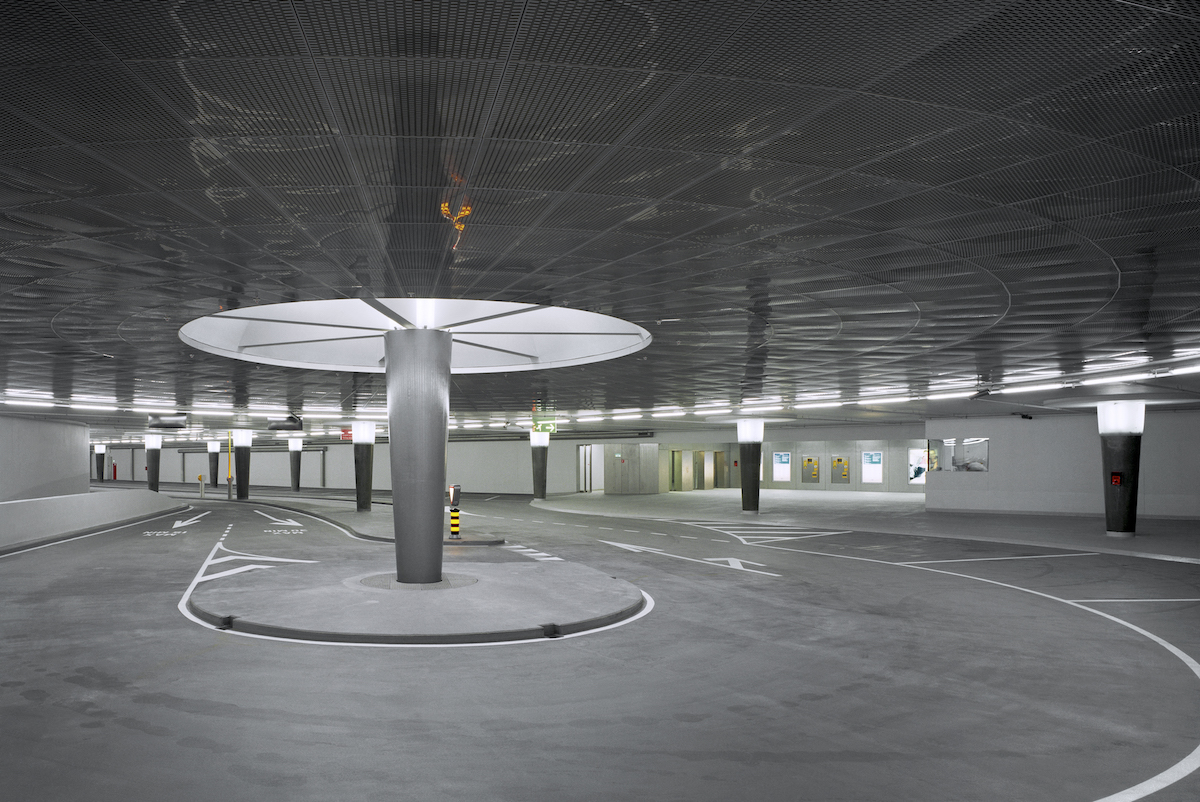
We have to understand interconnectivity with public transport because that system is going to escalate and we need to be ready. – Philippe Op de Beeck
“Cities wanting to diminish traffic in the core city centre would prefer the option to go car-free, except for the people who live there, of course. So it’s very important for us to know where parking loops can be placed,” Philippe explains. “We’re going to have to be a lot more dynamic working with cities where car parks are needed, and a lot more fastidious to ensure we get a good return on our investment. This will require extensive research.
“We have to understand interconnectivity with public transport because that concept is going to escalate and we need to be ready. We have some projects, mainly with railway or subway systems, where the number of car parks will actually increase dramatically, but at a distance from the city centre,” Philippe says.
“It’s much more than a classic park’n’ride, a much bigger service, and it will be technology driven. “In some big municipalities, multiple park and ride carparks will be built around the city. Your train tickets will be interconnected with our car parks and car sharing will be enabled, as well as the use of electric cars. We want to play a large role in all of these parking evolutions.”
Of course, one huge evolution in the motoring world is the advent of electric cars. It’s estimated there are around 2 million on the road worldwide and that number is growing daily. Charging electric cars has become big business with e-mobility stations becoming more common in Europe, in particular Norway, where the service is considered more of a must than an option. However, with the electric car comes new challenges, such as the time it takes to recharge compared with filling a tank with petrol. It’s a major consideration, and once again with the consumer always front of mind, APCOA has installed 200 recharging points in its German car parks, offering designated parking bays to shoppers and commuters. It’s all about convenience: the driver can shop, attend a meeting, or catch a bus to work while the car recharges for long- or short-range distances.
Suppliers with strong reliability and reputation
Surprisingly, despite the size and breadth of its portfolio, and a choice of scores of suppliers, APCOA relies on just 6 to provide its equipment, conceding that the most vital, and indeed fundamental, element needed to operate a car park is the ability to enter and, even more importantly, exit. Nothing will infuriate a driver more than having to shout into the exit speaker because the exit station won’t accept a ticket or a credit card or keeps spitting out coins it declines, for no apparent reason.
“A driver only sees the payment machines and the barrier going up and down,” Philippe says. “But if you look at the data from just one transaction, there are probably more than 10 data points, from tracking when the driver enters to what the weather is like, because external factors will affect our capacity. So we need very reliable suppliers who can give us stable interfaces, and we’ve chosen the best.
“Let’s look at a very simple, mundane example: the tickets,” he adds. “We could probably buy tickets 30% cheaper than we do now, but the failure rate of these tickets, either being read or even catering for a little hiccup, can be very high. We have more than 150 million transactions a year, a very high volume, but we deal with only 2 ticket suppliers because of their strong reliability and reputation.”
APCOA’s relationship with suppliers also extends well into the lifetime of the car park. Equipment relied upon for more than a decade needs ongoing maintenance, and with constant advances in technology, upgrades are essential and carried out often.
“There are a lot of advancements,” Philippe admits. “Imagine all the changes needed where we’ve leased contracts for more than a decade. There are new payment methods, new regulations, and a lot of change — all of that needs to be maintained and upgraded. It needs to be built ultimately into the equipment, which is why we have longstanding relationships with our 6 suppliers.
“We have frame agreements that cover the 12 countries, not just in pricing and volume but also our response time, spare parts, and joint development. This isn’t always straightforward because not all these suppliers have direct representation in all these countries, so we put a lot of effort, along with our partners, into ensuring distributors follow the same rules of the game.”
Environmentally conscious parking operators
APCOA is also gaining a reputation for being one of the most environmentally conscious parking operators through its use of sustainable, innovative practices. Simple steps to help ease congestion around cities have been introduced, such as more road signage, and programming 1,300 APCOA car parks into navigation systems to enable drivers to head directly to their car parks rather than circling the city looking for a spot.
The company is saving on the use of conventional energy wherever possible too, and actively seeks out the use of alternatives, only installing systems with low energy consumption. Using the benchmark of 370 kW/h of electricity per parking space every year, APCOA reduced energy consumption by 70% after retrofitting two-thirds of its managed UK car parks with LED lighting and proximity sensors. In Germany, these technologies have also been fully implemented and are expected to deliver energy savings of 21 million kW/h by the year 2020, which equals a CO2 emission reduction of almost 12,000 tonnes. At Arlanda Airport in Stockholm, Sweden, APCOA’s taxi management system generates CO2 emission savings of more than 11,000 tonnes per year. Other environmentally friendly ideas include the installation of solar panels at Heathrow Airport, as well as at Stuttgart Airport.
We put a lot of effort, along with our partners, into ensuring distributors follow the same rules of the game. – Philippe Op de Beeck
Car sharing is another practice becoming more popular around the world. While offering solutions to drivers who don’t own cars and want a quick-fix solution to drive somewhere, there’s a growing demand for parking spaces at short notice. APCOA has offered special conditions for long-term parking spaces in designated areas to national and regional car-sharing providers. These are all positive steps towards sustainable growth and helping the environment. Car parking, as Philippe explains, is more than just a boom gate going up and down and a ticket spitting out of a machine. Behind the scenes is a company like APCOA constantly ensuring the latest technology is easing stress for drivers and providing a safe place for that car of yours to head to at the end of the day — all on its very own.

